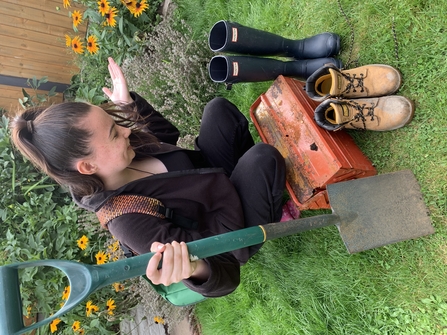The last 12 months have been a real journey for me, especially when it comes to deciding how much I need to take with me when I’m at work! I am usually the type of person who takes everything (including the kitchen sink if I could) when I go out for the day.
On my first day as a trainee, I really didn’t know what I needed to bring...so I bought everything! Waterproofs, walking boots, food and water, pens, paper, phone etc. I quickly learnt that you don’t really need to bring that much ‘stuff’ with you and that it depends very much on what you will be doing on any given day (and what the weather forecast says). On top of this, knowing what you need to take means that you're not needlessly carrying loads of surplus kit over long distances.


